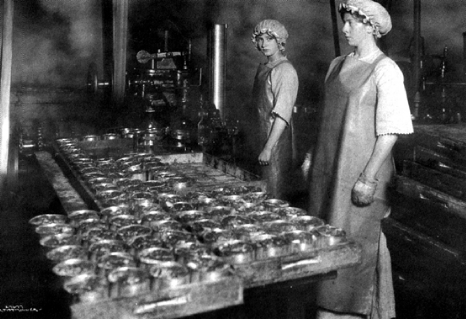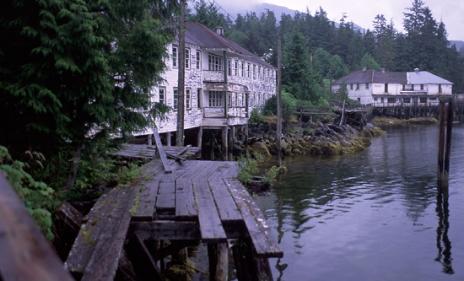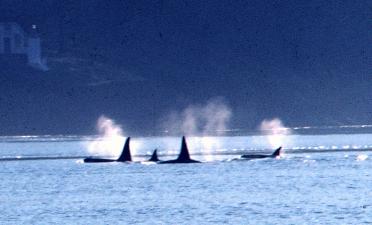 |
|
Small Craft Route - Namu - Mile 374 |
||
 |
||||||||||||
Today, Namu is just a shadow of what it once was - a bustling cannery and cold storage. When I stopped in March of 1981, the herring fishery was in full speed ahead mode, with deeply loaded boats at the dock, and the processing plant running around the clock. Those days are gone - a recent visitor reported 6 residents, trees growing through the cannery buildings, an empty hotel and a pretty well stocked store with no customers But what really put Namu on the map happened in June of 1965, when fisherman Bill Lechkobit and Robert McGarvey accidentally caught a big killer whale in their net, decided to keep it alive and see if they could find a buyer. Along came Ted Griffin, owner of the Seattle aquarium, spending $8,000 to buy the orca, and another $60,000, to build a floating cage and hire a tug to tow the 375 miles to Seattle. Locals said that the orca's mate followed the cage for many miles. Griffin was lucky - the weather stayed calm and they made it without the cage breaking up. In Seattle Griffin named the orca Namu, put him in a big tank with viewing ports. At that time orcas were thought to be agressive man killers, but Namu revealed his species as being, smart, gentle, and very intelligent, and essentially began the practise of capturing orcas for aquarium display. |
||||||||||||
In better days - cans waiting to filled with salmon. This is from an excellent book on British Columbia salmon canning: The Good Hope Cannery |
||||||||||||
 |
||||||||||||
How a town slowly fades away: Namu after the cannery and the herring plant closed is slowly falling into the bay and disappearing into the forest. Photo courtesy of John Harvey |
||||||||||||
 |
||||||||||||
Killer whales - Namu, the killer whale that began the change in the world's perception of these mammals was captured here. |
||||||||||||